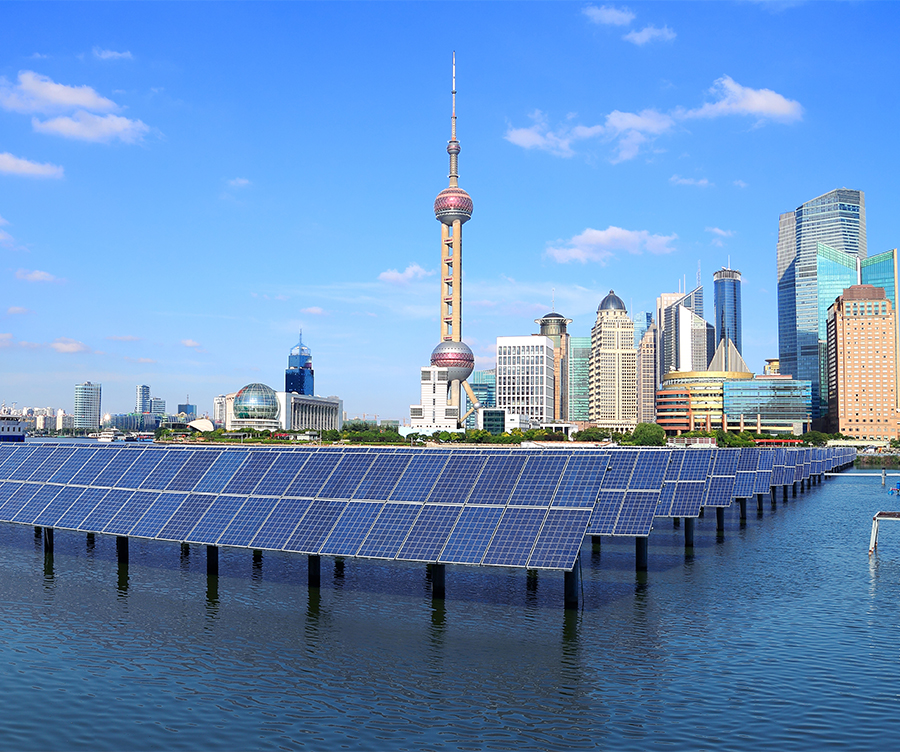The US government has taken aim at China’s solar panel industry in an effort to root out alleged forced labour from American supply chains. Meanwhile the UN has pressed the Asian giant to allow it to investigate claims of human rights abuses in the Xinjiang region.
US Customs and Border Protection (CBP) issued a withhold release order (WRO) against Hoshine Silicon Industry Co Ltd, a Xinjiang-based company, on June 24. Shipments from Hoshine containing silica-based products, used to make parts of solar panels, will now be immediately detained upon entering the US.
The solar industry is vulnerable to forced labour in the Xinjiang region, warns a May report, titled In Broad Daylight, by Sheffield Hallam University.
The vast majority (95%) of solar panels rely on one primary material – solar-grade polysilicon, it says. Manufacturers in China account for approximately 75% of the world’s solar-grade polysilicon supply, with the majority of the market (45%) in Xinjiang.
In response to the WRO, Zhao Lijian, foreign ministry spokesperson, said in a press briefing on June 25: “From cotton to PV, from agriculture to industry, the US uses lies as a tool and resorts to its hegemony to suppress Xinjiang’s industrial development by all means with human rights as a cover.
“The US, with the issuance of withhold release order, is tantamount to a bandit illegally seizing others’ property.”
It is clear that the solar industry has been dragged into the global political row over forced labour claims in Xinjiang. Restrictive actions by the US – and perhaps other players in the near future – may also present an opportunity to build up domestic solar supply chains to compete with China.
UN is ‘gravely concerned’
CBP’s forced labour investigations have produced six WROs in the 2021 financial year, including one on cotton and tomato products – two key commodity exports for China – from Xinjiang.
Hoshine, along with four other companies operating in the region, have now also been added to America’s entity list that restricts the export, re-export, or in-country transfer of commodities, software and technology.
Hoshine, Xinjiang Daqo New Energy, Xinjiang East Hope Nonferrous Metals, Xinjiang GCL New Energy Material Technology and XPCC were added to the list “for participating in the practice of, accepting, or utilising forced labour in Xinjiang and contributing to human rights abuses against Uyghurs and other minority groups in Xinjiang”, states a briefing by the White House.
A few days prior to the action on June 22, the United Nations said that it is “gravely concerned” about claims of human rights abuses of Uyghur Muslims in Xinjiang.
“Credible reports indicate that over a million people have been arbitrarily detained in Xinjiang and that there is widespread surveillance disproportionately targeting Uyghurs and members of other minorities and restrictions on fundamental freedoms and Uyghur culture,” reads a statement by the UN Human Rights Council.
The council urged China to allow immediate and unfettered access to Xinjiang for independent observers to assess the situation.
Escalating tensions
In the past few years, worries of abuse against Uyghurs have been growing as reports surfaced about their alleged treatment in so-called training and re-education camps and involvement with forced labour in global supply chains.
World leaders have condemned the alleged abuse and multinational companies have withdrawn from sourcing materials in the country amid fears of forced labour in their supply chains. Analysts say, however, that switching to new suppliers elsewhere in the country, or in Asia, comes with similar risks.
In April, tensions between the East and West intensified over Xinjiang. The Asian giant, which has fiercely denied any wrongdoing, imposed sanctions on the UK, EU, US and Canada after a crackdown by the Western states on Beijing over human rights issues.
The Western alliance sanctioned four Chinese senior state officials, as well as the Public Security Bureau of the Xinjiang Production and Construction Corps (XPCC), the organisation responsible for enforcing repressive security policies across Xinjiang and which has recently been added to the US’ entity list.
The action marked the first time in three decades – since Tiananmen Square – for the UK, EU and Canada to punish China for human rights abuses.
Meanwhile major fashion companies, including Nike and H&M, have previously voiced concerns over the reports of Uyghur abuse in the cotton industry – the latter said last year it had stopped sourcing from Xinjiang, a major cotton hub.
Following the sanctions on Beijing and renewed pressure on China, the country launched an unofficial boycott of Western brands, removing them from searches on major e-commerce platforms Tmall and JD.com. That proved problematic for the brands that rely on the market, which has 1.4 billion consumers, for a chunk of their sales.
Xu Guixiang, a foreign policy spokesperson, said in a press conference in late March: “H&M is an enterprise, so it should carry out its own business activities instead of politicising its economic behaviour.”
Elsewhere, countries are taking action to remove forced labour and ensure adequate human rights in supply chains.
Earlier this month, Germany passed a law that obliges large German companies to ensure that their overseas suppliers meet certain environmental and social standards. Meanwhile Australia has been urged to adopt a system similar to that of the US’ WROs when it suspects forced labour in products.







